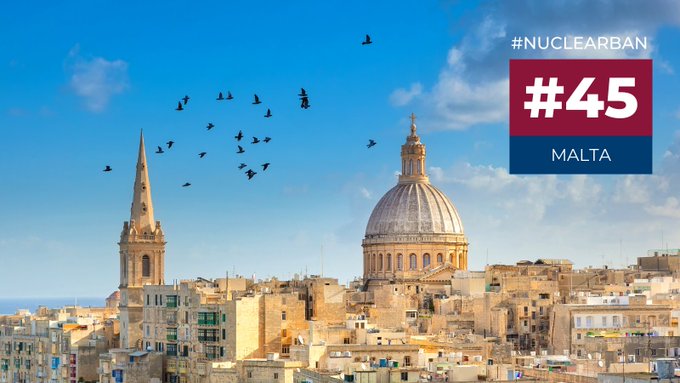Malta has become the 45th state party to the Treaty on the Prohibition of Nuclear Weapons. It deposited its instrument of ratification on 21 September 2020 as world leaders met to commemorate the 75th anniversary of the United Nations. The move also coincided with Malta’s Independence Day, which marks the date on which the country declared its independence from the United Kingdom, a nuclear-armed state, in 1964.
Just five more ratifications are now needed to bring the treaty into force.
Malta’s permanent representative to the United Nations, Ambassador Vanessa Frazier, signed the treaty on 25 August, less than a month before the country ratified it. The foreign ministry stated that its decision to become a party to the treaty underscored “Malta’s unwavering commitment towards nuclear non-proliferation, and highlights its commitment towards achieving prosperity through peace”.
Malta participated in the negotiation of the nuclear weapon ban treaty in 2017 and was among 122 nations that voted to adopt the final text. The treaty comprehensively and categorically outlaws nuclear weapons and establishes a legal framework for the elimination of existing stockpiles. It also mandates assistance to victims of the use and testing of nuclear weapons.
In 2016, Malta was a co-sponsor of the UN General Assembly resolution that established the formal mandate for states to commence the negotiations in 2017 on “a legally binding instrument to prohibit nuclear weapons, leading towards their total elimination”. A year earlier, it was among 127 states that endorsed a “humanitarian pledge” to cooperate “in efforts to stigmatise, prohibit, and eliminate nuclear weapons”.






